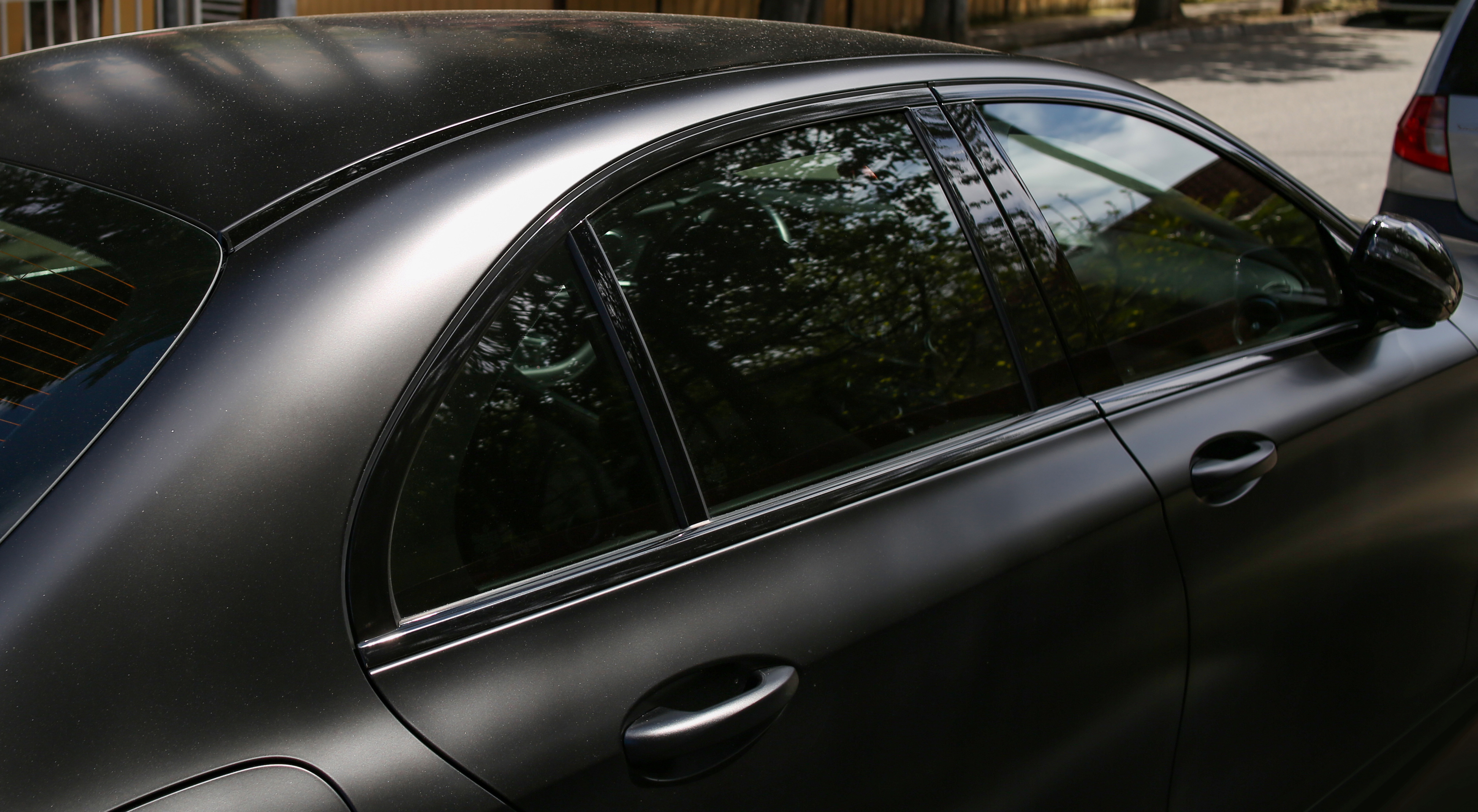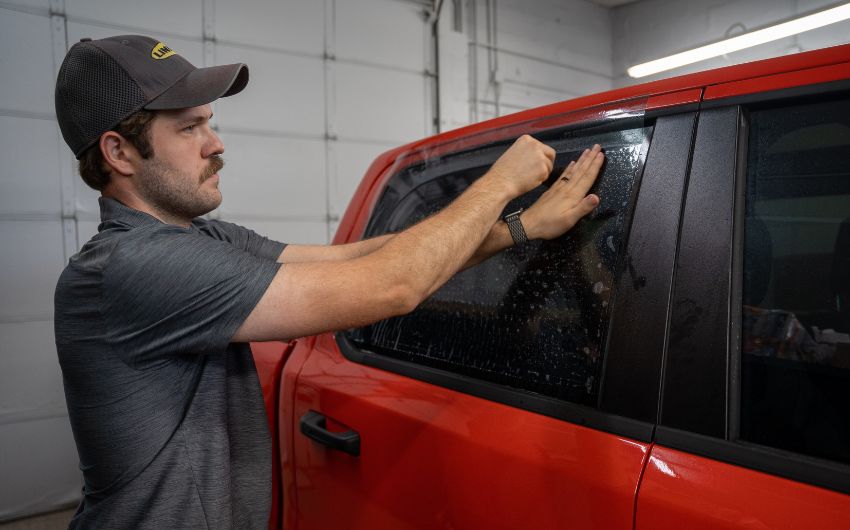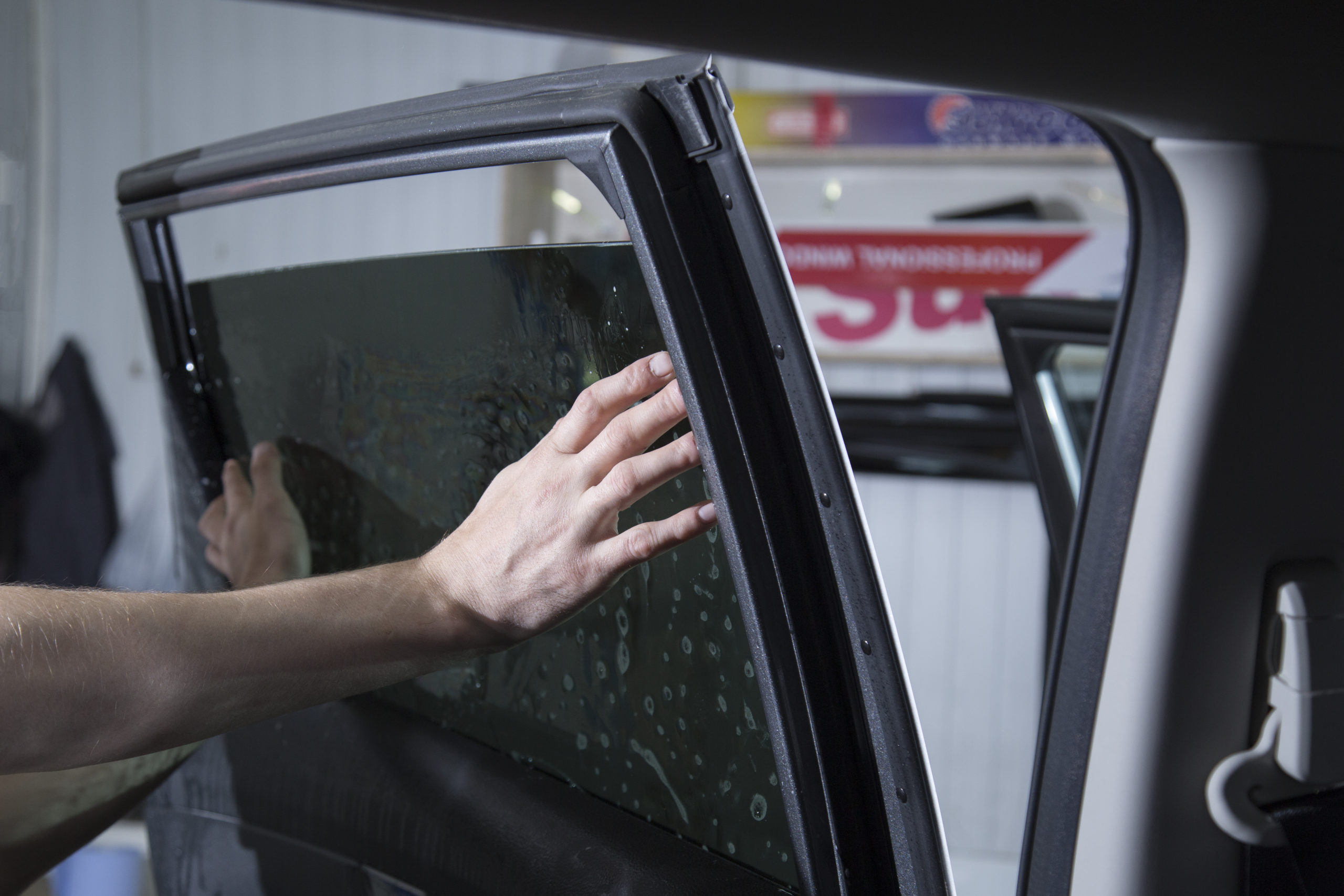Custom Car Window Tinting Solutions for a Streamlined and Stylish Look
Custom Car Window Tinting Solutions for a Streamlined and Stylish Look
Blog Article
Window Tinting Rules and Standards: What You Need to Know Before Tinting Your Auto
Prior to proceeding with home window tinting for your vehicle, it is vital to acquaint yourself with the varied regulations and standards that control this practice throughout various states. These regulations determine the acceptable degrees of tint darkness, typically determined by noticeable light transmission (VLT) portions, and include certain terms for front windscreens targeted at making certain roadway safety. Additionally, certain territories may supply medical exceptions for people with certifying problems. Comprehending these complexities can conserve you from prospective legal ramifications, however what are the specific regulations in your state?
Review of Home Window Tinting Regulations
Window tinting legislations are frequently subject to variant across various jurisdictions, mirroring regional laws and safety considerations. These regulations determine the permissible degrees of color darkness and reflectiveness on car home windows, making sure that vehicle drivers preserve appropriate visibility while likewise protecting versus unsafe UV rays and heat.
Most policies classify window tinting based upon the Visible Light Transmission (VLT) portion, which indicates the quantity of light that can travel through the home window. Usually, lower VLT portions indicate darker tints. Laws typically set apart in between the front, side, and rear windows, with more stringent constraints applied to the front windscreen to enhance safety for both the vehicle driver and other road users.
Compliance with window tinting guidelines is essential, as violations can result in fines, obligatory elimination of the color, and prospective boosts in insurance coverage premiums. It is necessary for lorry owners to acquaint themselves with regional laws before proceeding with home window tinting setups.
State-by-State Tint Regulations
Comprehending the particular window tinting laws in each state is essential for vehicle owners seeking to abide by the regulation. Each state in the united state has actually developed its own collection of regulations governing home window tinting, which can vary dramatically. These guidelines often dictate the allowable levels of tint darkness, the sorts of home windows that can be tinted, and any medical exemptions that might apply.
For instance, states like The golden state have rigid limitations on tint darkness for front home windows, while others, such as New Mexico, might enable darker tints. Furthermore, particular states mandate certain presence portions for numerous windows, consisting of the windscreen, front side home windows, and back windows. It is vital for car owners to acquaint themselves with their state's regulations to stay clear of potential penalties or fines.
Furthermore, some states might require a certification sticker to be put on colored windows, suggesting compliance with state regulations. Failure to abide by these guidelines not only takes the chance of legal effects but can likewise influence security and exposure while driving. For that reason, automobile proprietors must carry out extensive research or seek advice from local authorities to make certain full understanding and compliance with state-by-state tint guidelines.
Allowed Color Degrees and Kinds
Lots of automobile proprietors may be amazed to learn that enabled tint degrees and types differ widely across various states. Each state has developed its very own policies regarding the permitted darkness and reflectivity of window tint, typically measured by Visible Light Transmission (VLT) portions. VLT refers to the amount of light that can pass via the tinted home windows; hence, a reduced percent suggests a darker tint.

In addition, the kinds of tint materials permitted can differ, with some states forbiding mirror-like or metallic finishes. It is vital for lorry proprietors to familiarize themselves with their state's details regulations to make sure conformity. Non-compliance can cause penalties, obligatory removal of the tint, or other legal consequences, making it crucial to recognize these regulations prior to continuing with setup.
Medical Exemptions for Tinting
While not all states give allocations for clinical exemptions regarding home window tinting, those that do identify the necessity for specific individuals to improve visibility and convenience as a result of medical conditions. Various clinical conditions, such as lupus, skin cancer, and specific eye problems, can make individuals specifically sensitive to sunlight. These people may call for darker tints to safeguard themselves from harmful UV rays and glare.

It is important to note that despite having a medical exception, there might still be constraints on the level of tint enabled. Compliance with state regulations guarantees that individuals are both protected and within legal limitations. Those taking into consideration clinical exceptions should call their local Division of Motor Automobiles or equal authority to comprehend the treatments and requirements required to get an exception efficiently.
Fines for Non-Compliance
Failing to adhere to window tinting laws can cause significant penalties, which differ by state. Police are empowered to release citations for automobiles that do not stick to the defined tinting laws. These fines typically consist of fines, which can vary from small total up to several hundred dollars, depending upon the seriousness of the offense and the state concerned.
In some jurisdictions, repeated offenses may cause escalating penalties or extra fines, such as mandatory court looks. Non-compliance may require the removal of prohibited tinting, commonly at the proprietor's cost. In severe instances, habitual culprits may deal with suspension of their car registration till compliance is achieved.
Furthermore, insurance policy implications might arise from obtaining numerous citations for window color violations. Insurance providers might watch such infractions as an indicator of riskier habits, potentially resulting in boosted costs or trouble in insurance coverage.
To prevent these charges, it is essential for automobile proprietors to acquaint themselves with their regional window tinting laws and make certain that their automobile complies (Window Tinting). This positive strategy not only stays clear of legal ramifications however additionally promotes roadway safety
Final Thought

A lot of laws categorize home window tinting based on the Visible Light Transmission (VLT) portion, which indicates the quantity of light that can pass through the home window. Compliance with home window tinting laws is vital, he has a good point as offenses can result in fines, compulsory removal of the tint, and prospective increases in insurance coverage premiums.Comprehending the specific home window tinting regulations in each state is essential for vehicle proprietors seeking to abide with the law. These regulations typically dictate the allowable degrees of tint darkness, the types of windows that can be tinted, and any kind of medical exceptions that may apply.
For instance, states like The golden state have rigorous constraints on color darkness for front windows, while others, such as New Mexico, might allow darker colors.
Report this page